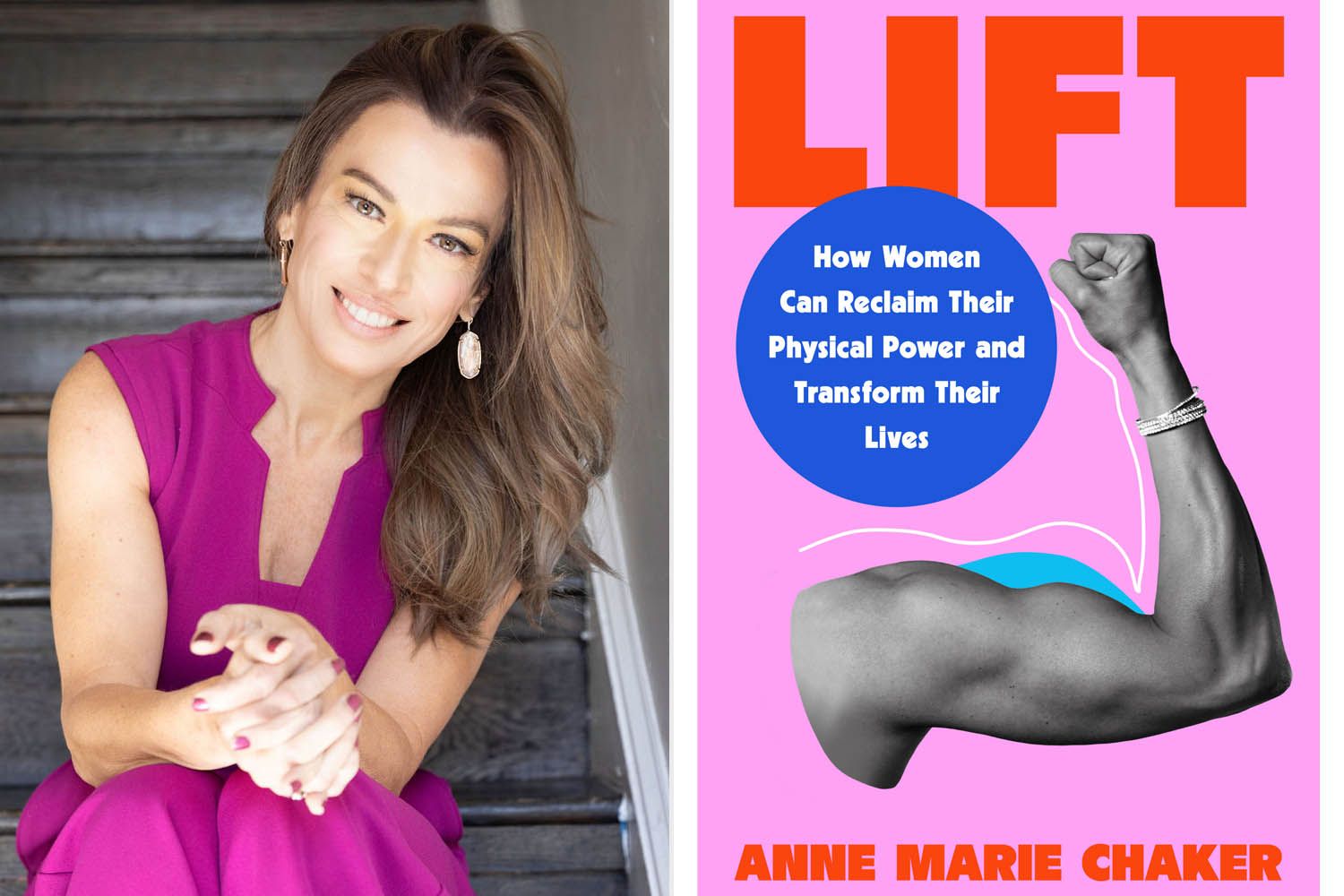NEED TO KNOW
- After grappling with postpartum depression and alcohol dependency in her early 40s, a chance encounter in a hotel fitness center set Anne Marie Chaker on a health journey
- Chaker left her job at The Wall Street Journal, where she worked for more than 25 years, and is now a professional bodybuilder
- Chaker, now 50, has a new book out, Lift: How Women Can Reclaim Their Physical Power and Transform Their Lives.
In her early 40s, Anne Marie Chaker was on a path to self-destruction.
After experiencing trouble sleeping, a neighbor suggested she drink a little wine before bed. Chaker, then just a social drinker, took the advice, and became addicted to alcohol after the birth of her second daughter.
“The postpartum depression lasted a while, which led to the drinking, which led to my marriage falling apart,” Chaker tells PEOPLE.
Things came to a head while she was on a trip with her mother and two daughters, the youngest of whom was a toddler, for her eldest daughter’s ice hockey tournament hours from their home. As she drove to the tournament one thought consumed her mind: How would she get around her mom to have her next drink? Chaker remembers thinking: “I need help. This is not normal.”
When they got to their hotel, Chaker visited its fitness center, where she met Sara Chiappone — a bodybuilder — whose muscles intrigued her.
“She had this incredible know-how, and she looked incredible, but not because she was thin or skinny, but because she looked like an athlete, and I could see her muscles ripping,” says Chaker, who was working at The Wall Street Journal at the time. “When I looked at her, I thought, ‘This is everything I want to be, and this is not what I am right now.’ ”
Chiappone referred her to a coach who helped Chaker change how she thought about exercise, her body and her life. Now, 50, Chaker is a professional bodybuilder with a new book out, Lift: How Women Can Reclaim Their Physical Power and Transform Their Lives.
Chaker was an athlete growing up, and says she had missed that side of herself — especially when she met Chiappone, whose daughter was on the same ice hockey team that Chaker coached.
“I looked at myself like, what happened to me? I’m struggling. I have this drinking problem. I don’t love the way I look,” Chaker tells PEOPLE.
Anne Marie Chaker.
Tina Krohn
She asked Chiappone about her fitness regimen and Chiappone told her that she competed in bikini competitions, which, Chaker says, she initially knew little about but thought was ridiculous. Chiappone went on to explain that the contests were not beauty pageants but for bodybuilders, and she dished on her nutrition and macros.
“It all seemed very serious,” Chaker says.
After that, Chaker connected with Chiappone’s coach, who helped Chaker optimize what she was eating, and changed the way she thought of exercise and fitness, which, up until that point, she believed was about being thin.
“These bodybuilders and this bodybuilding community, power lifters, it was all about more,” Chaker says. “Building yourself, making more muscle, eating more to fuel your body to work optimally.”
Chaker says she found it all sexy — and the opposite of what she had always chased. Her coach, Tina Peratino, with whom she still works, had her track her food intake and she quickly learned that she was not consuming enough protein. Peratino also taught her how to lift weights and the benefits of doing so.
Chaker, who is now engaged, has been competing for years and has two upcoming competitions, on Jan. 17, 2026 in Tallahassee, Fla. and on Feb, 22, 2026 in Atlantic City, N.J.
She says she was initially skeptical of the sport’s embracing of fake tans, big hair and bikinis — and thought the poses were “a little too sexy.” She worried her mother would “freak out” if she knew Chaker was participating in these competitions, but she decided to give it a try with the support of her coach, Peratino.
And while she drinks occasionally, Chaker says she is no longer addicted to alcohol or drinking to self-medicate.
“I stopped craving it naturally, just because I felt so good,” she says. “It doesn’t have this hold over me that it used to.”
Chaker says she wrote her book and shared her fitness journey, in part, to shift views about “the skinny ideal” that she believes was created to benefit a patriarchy, and to highlight how powerful it can be to rebuild one’s self.
“It wasn’t until I started eating well and lifting heavy weights that I felt, ‘Oh my God. This is the body I was meant to have,’ ” she says.
